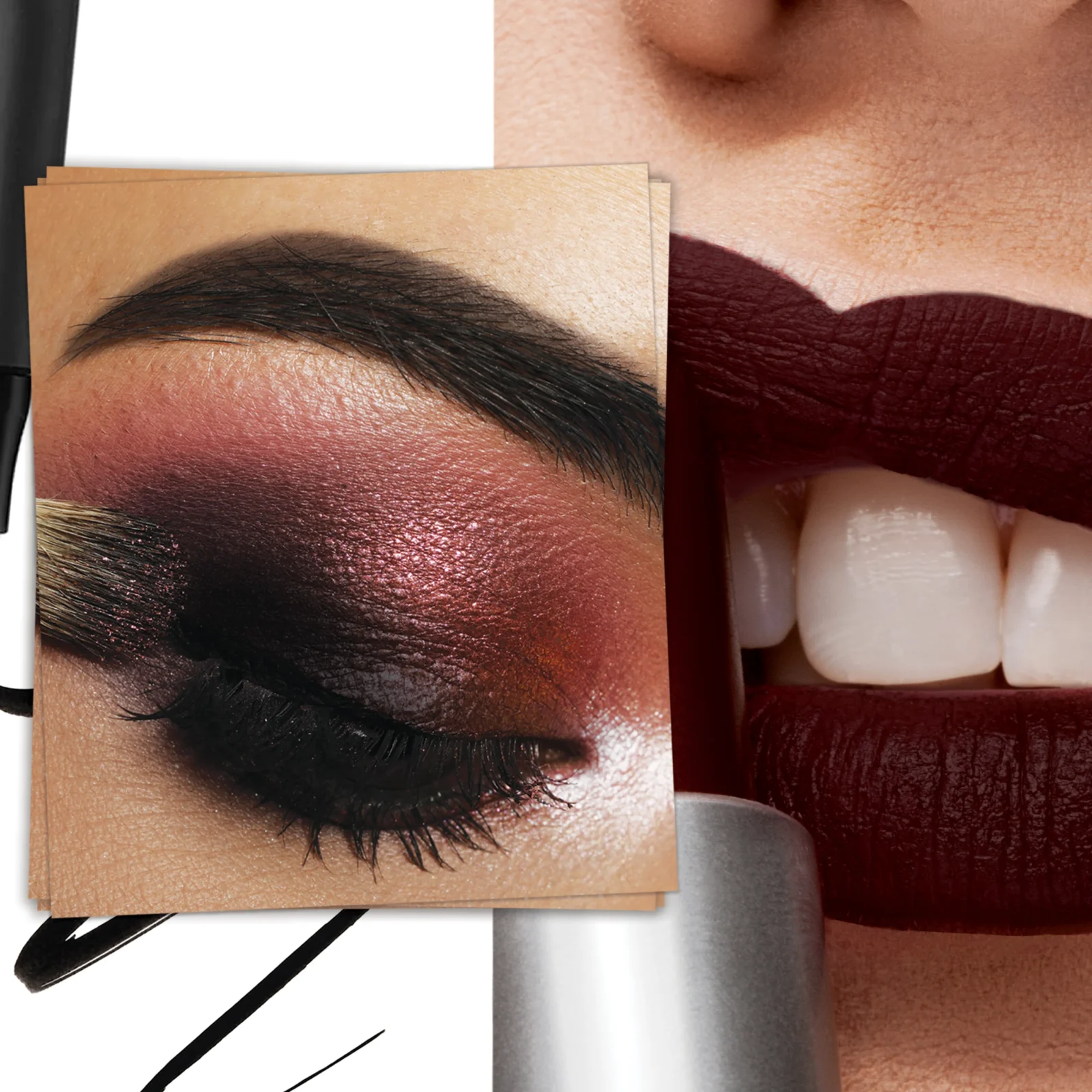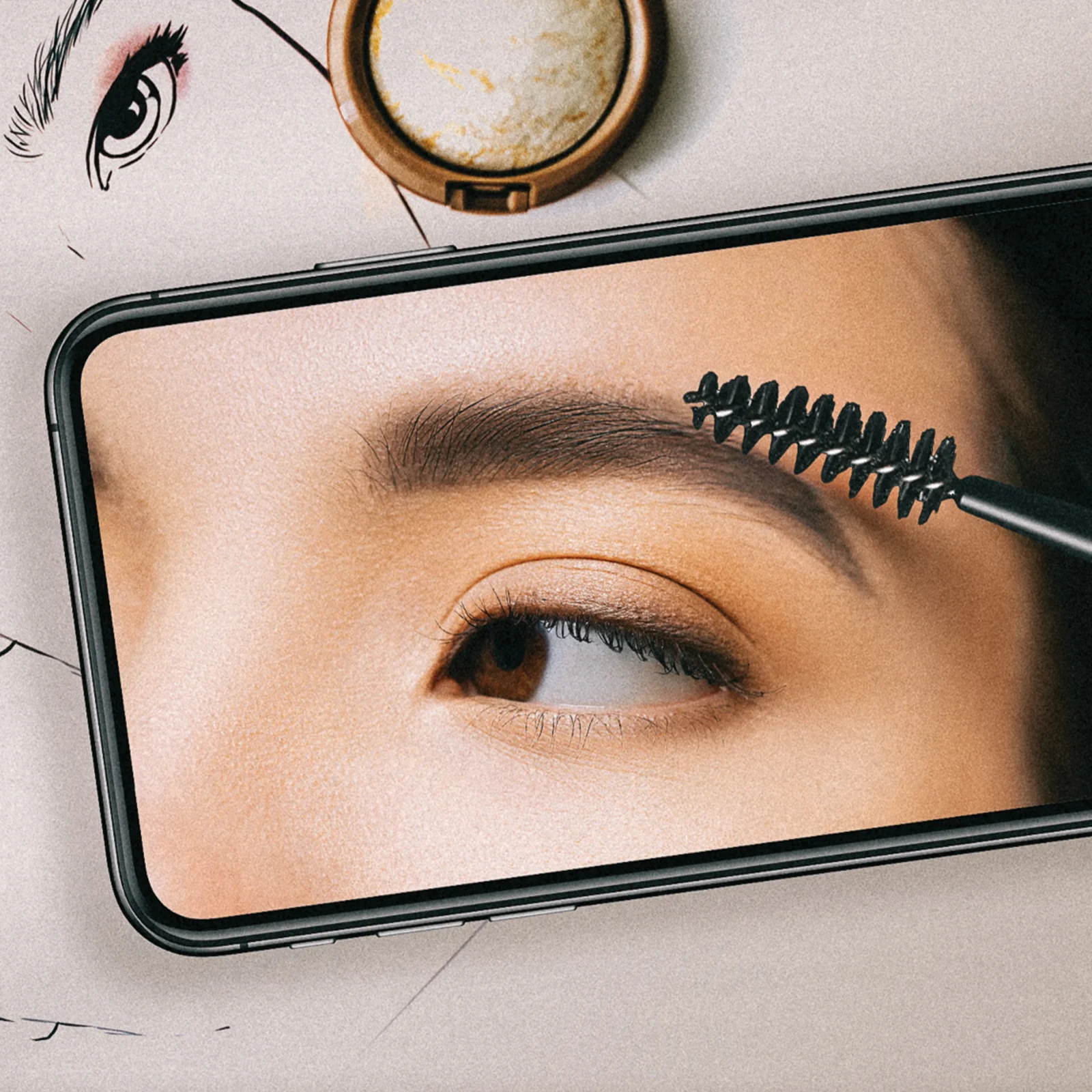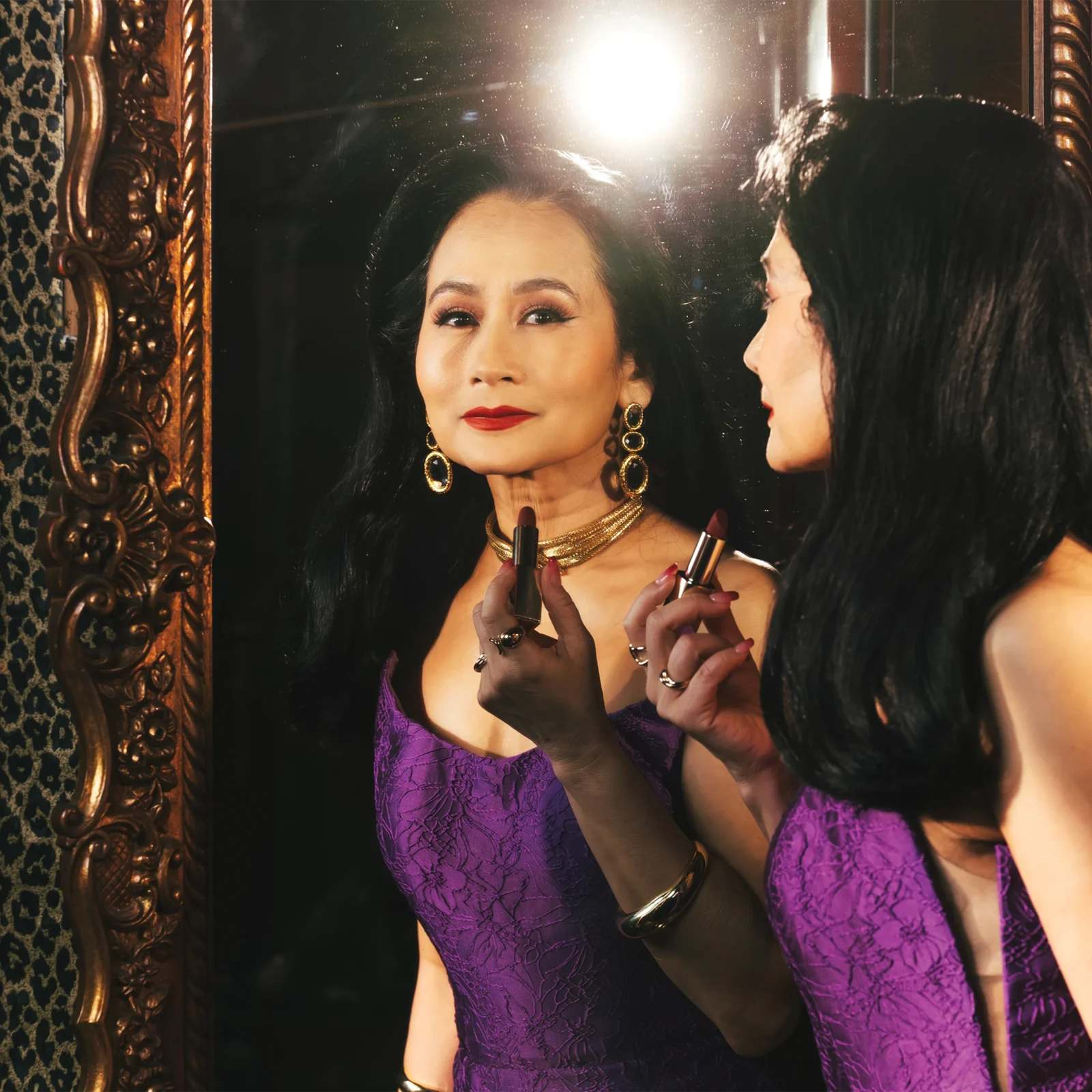Why Hating Makeup Was My Internalized Misogyny Talking
From “not like other girls” to embracing my girlhood—a beauty writer’s journey.
By Leira Aquino
At seven, I learned that makeup was “a girl’s thing.” I knew this because, while boys my age unwrapped trucks and toy guns at Christmas parties, my female cousins and I received pink, plastic “makeup for little girls” sets filled with glittery lip glosses and vibrant eyeshadow palettes. People around me always said it was easier to buy gifts for women: just choose between bags, clothes, or makeup. Girls love makeup, they said. I did not. I’m not like other girls, I said, proudly.
At 13, I took pride in rejecting the things most girls loved. They loved pink; I loved black. They wore dresses; I wore black shirts and jeans. Some girls in my class wore makeup, but I thought I was better than them because I could go to school barefaced, confidently (not really, I was a walking ball of insecurities.) I convinced myself I was cooler, more “authentic,” because I didn’t wear makeup. I saw it as something shallow, something superficial. Something just for girls.
When men mocked makeup, I laughed along.
It didn’t help that some men often dismissed makeup as trivial and worthy of ridicule. To them, it was just a girl’s thing. It was why women were labeled as vain and fake, and why they supposedly took hours to get ready, as if caring about appearances was inherently laughable.
For the longest time, I subscribed to that idea. I would rather be labeled “one of the boys” than be seen as “like the other girls.” The former was celebrated while the latter, I thought, was shameful.
At 16, KJM CHEEK.LIP. Tints became wildly popular. I remember seeing one of my gay friends wearing it in school, and soon enough, half the girls in class were using one, too. My pale complexion practically begged me to try it, and that was when I finally admitted that makeup is well-loved for a reason.
Now, don’t get me wrong. I had worn makeup before, but only on occasions when it felt obligatory. I would always rush to the bathroom afterward to scrub off the heavy foundation and erase the sticky feeling on my lips. I hated the texture. I hated being seen wearing it even more. But most of all, I hated being seen enjoying it.
‘I’m not like other girls’ was a lie I told myself.
At 18, I recognized that my past dislike for makeup was a byproduct of my internalized misogyny. I came across the term on Twitter. Curious, I dug deeper and started researching what it meant. Slowly, I began to realize how much it had shaped my own thoughts and actions. As a budding self-proclaimed feminist at the time, it was hard for me to admit that I carried the same thing that I hated the most. But the truth was impossible to ignore: I had been looking down on things I secretly loved because I thought they made me weak.
Internalized misogyny occurs when women unconsciously adopt negative beliefs about themselves and other women due to societal sexism, says MindNation licensed psychologist and psychometrician Lucille Foja, RPsy, who holds a Master’s degree in psychology with a specialization in counseling from Adventist University of the Philippines. This leads to self-objectification, competition among women, and the devaluation of feminine traits, the psychologist explains. “Because it operates unconsciously, individuals may not realize they hold these biases,” she says. “From an early age, societal norms subtly convey male superiority and diminish femininity, shaping perceptions and behaviors over time.”
Girlhood was happening all around me, and I pretended not to care.
It hit me in the classroom, watching the other girls during breaks. They’d pull out their compacts and lip tints, sharing blush and powder, laughing as they fixed each other’s makeup. There was an ease and closeness to it. A quiet kind of girlhood I had convinced myself I didn’t want to be part of. But I did. I wanted to be one of those girls. I envied how effortlessly they embraced makeup and how beautiful they looked without overthinking it.
One of my friends even gifted me a Colourette Colortint for my 18th birthday. I don’t remember the exact shade, but it was a warm pink that melted into my cheeks perfectly. That was one of the moments that made me realize I loved blush. But no, it wasn’t some sudden discovery—the signs had always been there. I had spent hours as a kid playing makeover games on Y8 with my girl cousins, carefully picking out the perfect lipstick shade, blush, and eyeshadow combo. But I had told myself it didn’t count. It was just a game, I said.
The truth was, I always liked makeup.
I just didn’t want to admit it because I thought it made me “just like other girls.” And I had been taught that was a bad thing.I wanted to be the girl who didn’t care about blush and lip gloss, who could hang out with the boys and not be seen as too girly.
But why was that a bad thing? Why was wanting to feel pretty and feminine something to be ashamed of? “Some women reject makeup as a response to internalized misogyny or as an act of resistance against societal beauty norms,” Foja explains. “Growing up in a culture that equates femininity with weakness, some unconsciously distance themselves from makeup to be seen as more capable or serious.”
The phrase “I’m not like other girls,” I began to realize, was created to divide women, to shame what most girls liked—whether it’s makeup, bags, pink, Barbie, or Taylor Swift—and how most girls behaved. It made us think there was something shameful about being excited and passionate about these things. As if the things that mattered more in the world were the “serious” and “hardcore” pursuits that boys traditionally valued. As if girls couldn’t embrace their girly interests, enjoy their feminine hobbies, and still be taken seriously.
I finally admitted to myself that there was nothing wrong with dressing up, putting on makeup, and feeling good about myself. Especially when I genuinely wanted to. I bought my first makeup products on BeautyMNL that same year. The haul included a Vice Cosmetics Water Gel Lip & Cheek Tint (discontinued), the ever-reliable Maybelline Hypercurl Mascara (still my go-to up to this day!), and more. I remember telling my best friend, “I think I like makeup now.” But the truth was, I always had. I was just too scared to let myself enjoy it.
Some girls don’t like makeup, and that’s fine. But for me, rejecting it wasn’t a preference. It was my internalized misogyny talking. I was distancing myself from something feminine because I thought it made me lesser. But femininity isn’t weak. And there’s nothing wrong with wanting to feel beautiful, to wear sparkly eyeshadow, or to spend an afternoon trying on lipstick shades with your friends. The real power lies in choosing it for yourself.
At 23, I became a beauty writer.
Who would’ve thought? I now craft countless stories about makeup, from finding the perfect foundation shade to mastering Sabrina Carpenter’s Barbie Effect blush. Topics I once dismissed as frivolous have become subjects I spend hours researching and writing about. The little girl who once hated going to proms and fancy events, pretending to loathe makeup, now has a career that revolves around it.
If I’m being honest, a part of me still wishes I could turn back time and reclaim the years I spent pretending to be someone I wasn’t. But while reflection is a good thing, regret serves little purpose. Today, I am learning. Today, I celebrate who I truly am and what I love.
It feels liberating to finally embrace my femininity fully, and all the little perks that come with it. Beyond the confidence boost and how makeup makes me feel good about myself, it also helps me connect with other girls, which, in a way, helps me reclaim a huge part of my girlhood.
Yes, I am reclaiming my girlhood in my 20s.
It’s girlhood when my friends and I wake up early during an out-of-town trip just to do our makeup together, helping each other blend the perfect blush or do each other’s sharpest eyeliner wings. It’s girlhood when a random girl compliments my highlights, and I, in return, gush over her perfectly blended eyeshadow. It’s girlhood when I ask an influencer what lip gloss she’s wearing, and she eagerly replies with the exact brand name and shade, down to the last detail. And it’s girlhood when I pick out a long-lasting matte lipstick as a gift for my friend who doesn’t like having to retouch her makeup throughout the day.
It is through this shared bond with other girls that I get to know and understand myself better, and no amount of male validation I get from pretending not being like other girls can replace that feeling.
I can finally say this, unapologetically—and to emphasize it even more, I’ll quote Ruby Gillis from the female-led series Anne with an E: “How I love being a woman!”
The phrase “I’m not like other girls” is often said with pride, laced with snark against the “other girls,” while “you’re just like other girls” is often delivered as an insult. But honestly, isn’t that a compliment? What’s not to like about being like other girls? The other girls are smart, loving, talented, creative, strong, opinionated, funny, caring, empathetic, and brave. Why wouldn’t I want to be like them?
So, the next time you catch yourself hating something or avoiding something (like makeup), because it makes you “just like other girls,” ask yourself this: What’s wrong with being like other girls?
Latest Stories
You might also like
To provide a customized ad experience, we need to know if you are of legal age in your region.
By making a selection, you agree to our Terms & Conditions.








